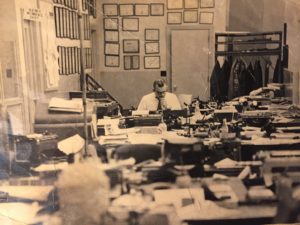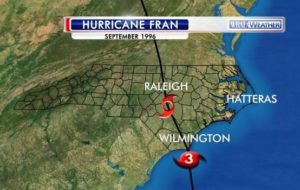The businessman, whose company was a polluter, asked me, “Is that your typewriter I hear? Are you typing down what I say?”
I said I was.
And he said, “That’s unethical!”
Huh?

I was working on a story we called “A Sewer Named Sugar,” about companies that were polluting Sugar Creek, a creek that runs through the heart of Charlotte and through its most popular park.
I had waded and walked the creek for more than 15 miles, from its headwaters to a point south of Charlotte, along with some tributaries, and I had found a number of polluters. Now I was trying to interview them.
I said to the man, “I told you my name; I spelled my name; I told you I was a reporter, that I worked for The Charlotte News; I told you why I called you, that I was working on a story about polluters; and I told you I wanted to ask you some questions.”
But he said he was done talking and he hung up. I waited, and I didn’t have to wait long.
The guy I was interviewing was the son-in-law of a top executive at my paper. A few minutes later I saw that executive get off the elevator and walked straight into the editor’s office.
I have no idea what he and Perry Morgan, the boss of The Charlotte News, talked about. I wasn’t there.
I do know Perry did not allow me to name that man’s business, or quote him. I could only identify it as a “heavy industry” and the general location.
That was bad, but it got worse.
The newspaper I worked for was also polluting the creek. The News dumped chemical solutions used to develop film into a storm drain that eventually drained into Sugar Creek.
I was not allowed to name my paper either. Perry told me, “Now you’ve gone too far!”
Postscript: Nothing, and I mean nothing, like that ever happened to me in the 37 years I worked for The New & Observer in Raleigh. If I could find it and prove it The N&O would publish it. No one and no thing was off limits.
Coming Friday: Navy Propaganda
 Early that Friday morning some of my neighbors were already out in the street, chain sawing, when I joined them and cranked up my Husqvarna. They had smaller saws, or dull chains, or both. My “Husky” was easily the king of the road.
Early that Friday morning some of my neighbors were already out in the street, chain sawing, when I joined them and cranked up my Husqvarna. They had smaller saws, or dull chains, or both. My “Husky” was easily the king of the road.